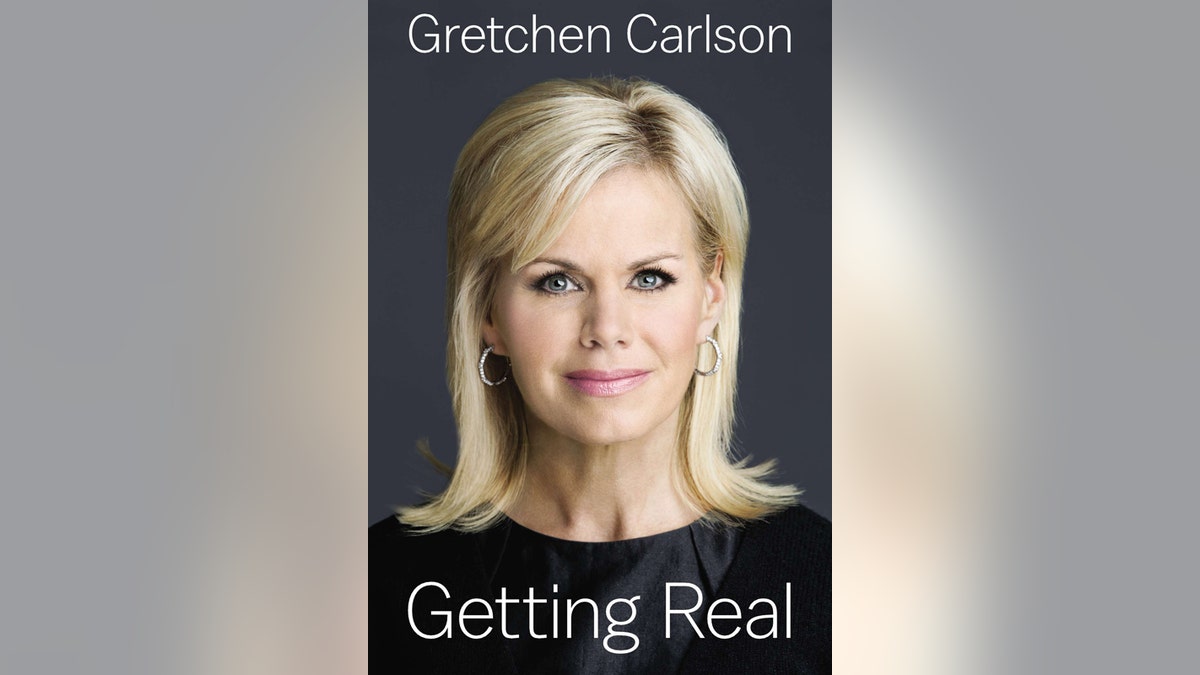
Editor's note: The following is an excerpt from Gretchen Carlson's new book, "Getting Real."
It was while doing "Fox & Friends" that I got a reputation for being a culture warrior. Bill O'Reilly started inviting me to come on "The O'Reilly Factor" for a regular culture warrior segment. I really cared about this stuff. Fox was the first place I'd worked where it was okay to talk openly about your faith on the air. Of course, I understand that when you're doing news reporting and anchoring, it's not appropriate. But at Fox I had a different kind of forum, so I went for it.
Where our culture is headed is an enduring topic of interest for many people, and I think they appreciate it that I take the topic on -- even when they don't agree with me. For example, I've received plenty of flak for talking about the war on Christmas, often being described as "freaking out" and "going ballistic," as if I were some demented Christian warrior. One website published this pearl: "If Bill O'Reilly is the commander-in-chief of the War on Christmas, Gretchen Carlson is the head of the women's auxiliary." The thing is, it's not a joke to me. I can't think of a single other religion whose holy day is treated like a joke.
It all came to a head over the Festivus controversy. Festivus is a fake holiday, invented by the hit show "Seinfeld" in 1997. It was a funny bit on the comedy, and I laughed along with the rest of the world. But then it got real. Some people subsequently began to celebrate the holiday as an alternative to the Christian celebration, and one of them wrote a book called "Festivus: The Holiday for the Rest of Us."
I was asking a question that needed to be asked: Do we think so little of our religious symbols and rituals that we would give equal weight to a beer can sculpture based on an old sitcom? I still think it’s a good question.
In 2008, when I heard that a group was petitioning the governor of Washington State to erect a Festivus pole as part of the Christmas display, I thought it was the stupidest thing I'd ever heard. When I brought it up on "Fox & Friends," Steve and Brian tried to laugh it off as silly, but I was dead serious. I thought it was mocking Christianity, and I said so. (And by the way, a lot of people think that on Fox we have producers talking to us through our earpieces telling us what to say. We don’t. That protest was all me.) “I can’t believe you guys are defending this,” I said to my laughing colleagues. “I’m all for humor, and I’m all for telling jokes, but this is an insult to Christianity.” I said I thought it was an outrage that my kids would have to grow up in a culture that forced them to grope their way past a Festivus pole to see a Nativity scene—on Christmas!
Festivus just wouldn’t die. The worst episode came in 2013, when a group erected a Festivus pole that consisted of six feet of beer cans next to a religious display that included a Nativity scene, a menorah, and other religious symbols at the Florida state capitol. Again I spoke out, appealing very straightforwardly to American values and common sense. I was asking a question that needed to be asked: Do we think so little of our religious symbols and rituals that we would give equal weight to a beer can sculpture based on an old sitcom? I still think it’s a good question.
I was gratified when the American Spectator magazine published an article by Jeffrey Lord titled “Gretchen Carlson Is Right.” Lord wrote, “Ms. Carlson’s outrage was right on target. She is exactly right to look into the cameras and call for a stand-alone display of that crèche. She understands perfectly what it represents, and that without the reverence and respect of those values we are all in serious trouble.” Amen!
My reputation as a culture warrior was one reason I got a role in the movie "Persecuted," which was released in 2014. The film is a thriller that focuses on two rights in America that are sometimes taken for granted: freedom of religion and freedom of speech.
The main character is an evangelist who is framed for a crime he didn't commit and persecuted for holding firm to his religious beliefs.
In the movie I play Diana Lucas, a journalist who asks tough ques tions. It was fun doing the movie, but the topic also meant a lot to me.
Every day in the news business, I report on stories just like this. Christians or people of other faiths are persecuted simply for standing up for something they believe. The intolerance seems crazy, but it's happening a lot more than you might think. The question "Persecuted" makes you ask is: Could the fictional movie plot ever happen here?
By the way, doing that movie was an example of how important it is to take on new challenges. I really stepped outside my comfort zone with "Persecuted." Actors have often told me they had a hard time imagining doing live TV and ad-libbing on the fly. Well, I had the opposite struggle on the movie set. It was very hard to sit still for fifty takes.
From "Getting Real" by Gretchen Carlson, published on June 16, 2015 by Viking, an imprint of Penguin Publishing Group, a division of Penguin Random House LLC.
Copyright by Gretchen Carlson, 2015.




















